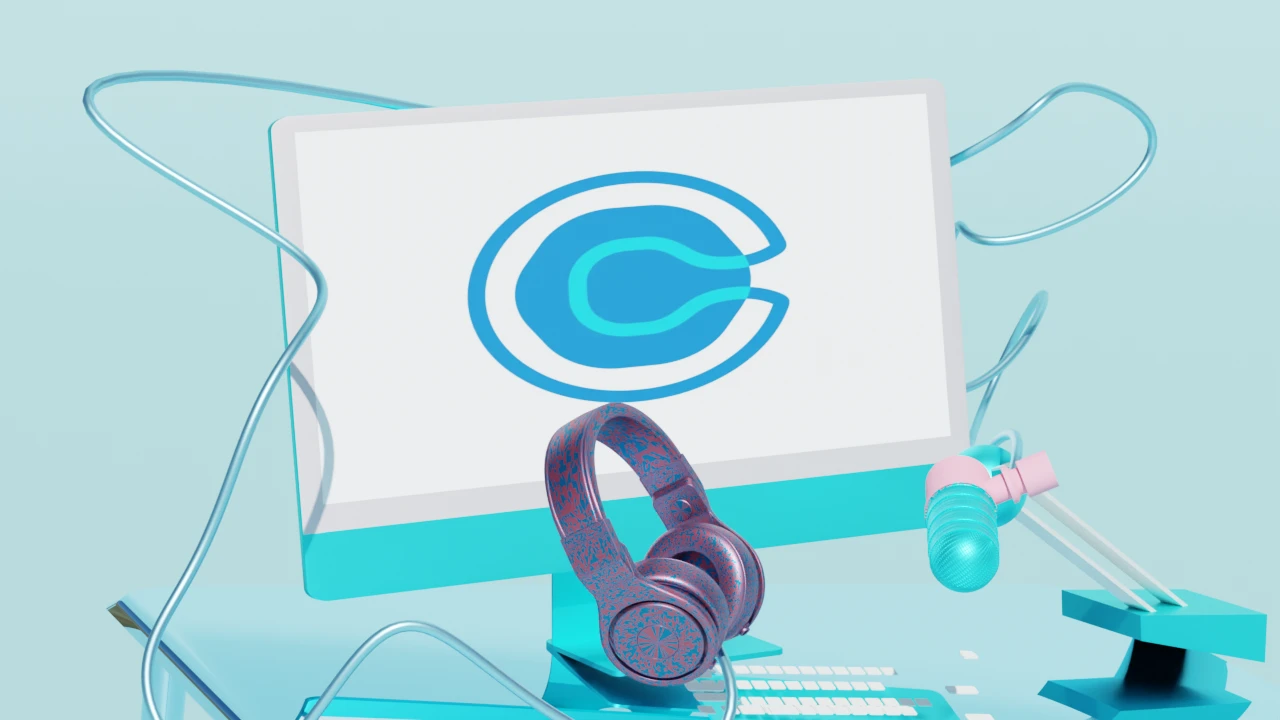When I was a reporter, in the early 1870s, the only way to record a phone call was to buy a gadget that you plugged into the landline phone on your desk. It recorded onto a micro-cassette tape, and it sucked. If the conversation went more than a half-hour, you had to stop to flip the tape over. To find what you needed afterward, you had to rewind and fast-forward, and if you recorded a lot of calls you’d end up with a mountain of stupid little doll-sized cassettes.
Those days are over, and good riddance. These days you can use a smartphone and a call recording app. It’s a game-changer for podcast interviews, sales calls, or even team meetings. Apps allow you to record an entire conversation while actively listening and participating in the conversation. And when you’re done they give you a digital file that’s super easy to navigate through. If you’re making a podcast, you can just drag that audio file into Descript, get a transcript, and start editing.
What is a call recorder?
A call recorder is a piece of software that records incoming and outgoing calls. They essentially serve as voice recorders for both ends of the line. When your call finishes, your call recording software presents you with an audio file that contains everything spoken on your phone call. In addition to this call recording feature, many of these programs provide transcription services that convert your speech to text (results may vary, so don’t rely too heavily on it). There are call recorder apps for almost any type of computer, including desktops, laptops, and tablets.
The 11 must-have features to look for in call recorder apps
Call recording apps are great for podcast interviews, reporting calls for journalists, or making feature-length documentary films (as one does). If you’re a podcaster, filmmaker, or journalist seeking the best software for call recording, you should insist upon the following features.
- Ability to record both incoming calls and outgoing calls. Basic call recorders can record outgoing calls you plan in advance, but the best call recording apps also record incoming calls, whether or not you were expecting them. That way you don’t miss a call from an important source, and you have a record of everything.
- Ability to start recording mid-call. Sometimes you don’t realize a phone call is worth recording until you’re deep into it. Your call recorder app should allow you to hit “record” at any point in the conversation.
- Option for automatic recording. The best call recording software can be customized as an automatic call recorder app. This way, the app records calls by default, but you can turn that recorder function off whenever you want.
- Supports automatic backups. A good call recorder app will let you automatically back up recordings to a cloud server — either a native server associated with the app, or a third-party server like Dropbox or Google Drive.
- Easy transfer of recordings to new devices. If you get a new phone or tablet, your call recordings should automatically come with you. The best call recording apps automate this process so that everything you recorded on your old phone shows up on your new phone.
- Easy transfer of audio files to laptop and desktop computers. If you’re in the podcasting business, you’re probably using audio software on a desktop or laptop computer. Your call recorder app should make it easy to download full audio files onto that computer, where you can edit and mix them as needed.
- Transcription services. A top-notch call recording app can provide text transcriptions of any phone calls recorded on your device. But if it doesn’t transcribe for you, just use Descript; our transcription is probably more accurate anyway.
- Call logs. In addition to using phone recorders to record audio, most podcasters and journalists also use them to keep a log of prior conversations. Make sure your call recorder app provides a log of phone numbers, call dates, and call times.
- Flexible recording formats. The iOS App Store and Google Play Store feature some lower-grade phone apps that only record in obscure audio formats. You want a call recorder app that records in MP3 format, which remains the most useful format for online sharing. (The AAC format is also rather flexible.)
- Play recordings in the background. Sometimes you need your phone recorder app to playback calls while you use a different phone app. Make sure your call recorder supports background playback, which will make this possible.
- Share recordings via social media. If you have a recording worth sharing with the world (and it was legally recorded), it should be easy to post it on social media. The best software for call recording makes it easy to post audio files directly from the app.
The 5 best call recorder apps
The online marketplace abounds with call recorder apps for Android phones and iPhones. To simplify your search for the best one, we’ve highlighted five call recording apps that stand out from the field.
- Rev Call Recorder. If you need a free call recorder for iOS, you could seek out Rev Call Recorder. Unlike most freeware, Rev Call Recorder does not populate the app with ads, which makes for a cleaner user experience. It also makes sharing easy, whether you wish to share via email, SMS, iMessage, or various online platforms. You won’t be able to record VoIP calls (those done via WiFi), and you won’t get automatic backup. If those features are critical, you may need to seek out a paid app.
- ACR. When it comes to the best free call recorder for Android phones, it’s hard to beat ACR (Another Call Recorder). The interface is remarkably intuitive, which lets you easily switch on the recording function in the middle of a call. You can also view recordings by contact name, assuming they are already in your phone book. ACR can’t record VoIP calls, and it doesn’t automatically backup your recordings. Still, these are small sacrifices to be made for a free app.
- Cube Call Recorder. If you use many different apps to place phone calls, chances are that Cube Call Recorder has you covered. This is great for podcasters and journalists who reach their sources via Skype, WhatsApp, Google Voice, Slack, and other such apps. Cube Call Recorder offers a free version that is ad-supported and a pro version that removes ads and adds features like automatic backup. Cube archives calls in Google Drive; if you aren’t a fan of that app, you may want to look elsewhere.
- TapeACall Pro. TapeACall Pro works on both iOS and Android, and on both platforms, it offers a clean interface, intuitive usage, and ample flexibility. Highlights include some of the best transcription services on the market, unlimited online storage, and easy integration with popular cloud computing services like Google Drive, Dropbox, and Evernote. If there’s one downside to TapeACall, it’s somewhat confusing pricing. The service offers various free and paid tiers, but even within paid tiers, there are add-ons that cost more money. Expect to pay $10.99 for the basic TapeACall Pro app, and then choose add-on services as needed.
- Truecaller. Many people seek out Truecaller for its spam-blocking and Caller ID functions. But on top of this, Truecaller offers excellent call recording capabilities when you upgrade to its Premium or Gold tiers. If your primary need is call recording with deep functionality, Truecaller may not be your top choice. But if you’re drawn to the idea of an all-in-one app that handles Caller ID, spam-blocking, and call recording, Truecaller may be perfect for you.
A note about consent when recording calls
It’s important to note that in some states, such as California and Florida, it is against the law to record a phone call (or any conversation) without the expressed consent from all parties in the conversation. Even if you do not live in such a state, federal law prohibits recording phone conversations without the other person’s knowledge in certain situations.
As a general rule, it’s always best to ask before you record a phone call, or let the other person know early in the conversation that the call is being recorded.






































%20(1).JPG)






